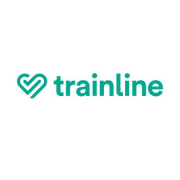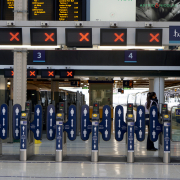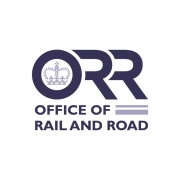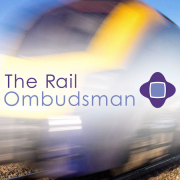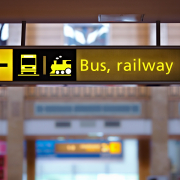Background
The Rail Ombudsman opened its doors on 26 November 2018, offering a free to consumers, expert, alternative dispute resolution service to help sort out unresolved customer complaints about service providers within the rail industry.
Our vision is to inspire customer confidence and to deliver our service fairly to ensure the right outcome in every case. We also support the rail industry to raise standards.
Like other ombudsman schemes, the Rail Ombudsman gives the parties the opportunity to settle their deadlocked disputes without the need to go to court. Firstly, we always try to resolve the dispute informally, but if this is not possible, we are empowered to make a decision which is binding upon the rail service provider.
We can also make recommendations to the rail sector (both individually to rail service providers and more broadly) to improve their service and we publish case studies and data which can help them to understand what they could do to raise standards.
Our Approach to Accessibility Cases
Since it began operation in 2018, the Rail Ombudsman has considered many different issues arising out of accessibility brought by passengers who have encountered difficulties when travelling on the rail network. This blog focusses on some of the experiences of passengers and, where outcomes were reached, the resolutions awarded by the Rail Ombudsman, under the Equality Act 2010, or otherwise.
Under the Equality Act 2010, disability means a physical or a mental condition which has a substantial and long-term impact on a person’s ability to do normal day to day activities. This is a broad definition which means, for example when proactively assessing what reasonable adjustments people may need to assist them when they travel, rail service providers will need to consider the differing needs of many individuals, each with their own unique circumstances. That said, taking a broad approach to inclusivity in policy making is not only achievable, but desirable since robust systems and approaches to staff training can lead to a better experience for all passengers across the network, increase confidence and service-use and reduce the need for complaints.
The Rail Ombudsman can look at claims with the potential to fall within the remit of the Equality Act 2010 and otherwise relating to accessibility. Our remit is defined by scheme rules that impact the way in which we are able to review such claims, for example:
- The Rail Ombudsman’s maximum award limit is limited to £2500. On average, where awards are made, cases relating to accessibility see a greater average award value (£145.63) as compared against other complaint categories (£90.62).
- The Rail Ombudsman can look into cases where the incident occurred within the last 12 months.
- The Rail Ombudsman is evidence-led and will require evidence or information to confirm what happened or what events took place and unlike a court will be unable to cross-examine people. That said, we will try to guide the parties as to what evidence is required to establish a case and will take an inquisitorial approach to evidence gathering, which means that if information is missing, we will ask the parties for it.
- The Rail Ombudsman’s decisions are binding on the rail service provider, but not on the passenger which means they could then decide to take a case to court, having first tested it via our alternative dispute resolution service.
- Rail Ombudsman cases have to be concluded within 40 working days unless there is a reason for a case to be extended, for example due to the passenger’s personal circumstances or needs. The Rail Ombudsman found during 2021 and 2022 that there was more scope to extend a case relating to accessibility when compared to other complaint categories, the average days to close for the former being 35 working days and 25 for the latter.
The circumstances that give rise to accessibility complaints can be upsetting and distressing for people and we recognise that in our empathetic approach to complaint handling. We will try to talk to people in every case, as long they want to engage with us in that manner, so that we can understand what went wrong from their perspective. We can also make recommendations to rail service providers to help them improve things and it is not unusual for us to suggest that the passenger has a meeting with the accessibility lead in order to improve their confidence in travelling going forwards and for them to understand any processes that they may need to follow and what flexibility can be arranged for them.
Understanding what went wrong and how to avoid that in the future, can be a big factor in passenger confidence and complaint resolution. Sometimes the parties settle without the need for a formal decision and we can facilitate that through the communication of offers and discussions as to why (or not) the passenger believes that may be reasonable. For example, one passenger who was stranded at a station due to a lift being out of order was content to settle the matter with an apology, a gesture to make this apology more meaningful and an explanation as to the change in policy that their claim brought about. Other claims may settle for monetary amounts and it is important here to recognise that offers should not be so small as to trivialise the policy which underpins the legislation and, therefore, to listen to the passenger and understand what they are seeking in resolution as a starting point to settlement discussions.
Some Case-studies
Below are some examples of where the Rail Ombudsman has made awards and some of the factors that we took into account.
- A passenger who was stranded when the ramp was not correctly deployed to disembark them was given an award of compensation to recognise that, whilst the rail service provider had a system in place, it was accepted that it did not work in the consumer’s case and the consumer was subjected to a protected and public incident as a result. The circumstances were mitigated by the fact that it was an isolated incident and an award was made which represented a sum that the passenger had indicated would be in the region of that which was acceptable to them, bearing in mind the Rail Ombudsman’s maximum award level within which we are required to grade the incident.
- In the same case noted above an additional award was made in respect of the complaint handling element. The rail service provider sent a hamper and some national rail vouchers. The consumer asserted that they did not accept the hamper, however this could not be verified as the rail service provider did not have a call recording since the call had been made on a mobile phone. Whilst broadly speaking, the onus would be on a passenger to provide some evidence to back up their assertion, the Rail Ombudsman considered that the rail service provider should have had systems in place either to record the call or provide a contemporaneous note. The consumer also stated they travelled on a free pass and so rail vouchers were of limited use. The Rail Ombudsman therefore made a further award for the way in which the complaint was handled.
- In a different case, the passenger held an “I can’t wait” card and RADAR key. They presented their card and asked staff to direct them to a toilet, the one on the station being out of order. In response, they were told to use a pub down the road. No evidence was provided to support that there was any advance notification of the toilets being out of order which precipitated the requirement to find another means of going to the toilet which would have been a public and embarrassing incident. The Rail Ombudsman recommended that the RSP considers how station information is reviewed to ensure all accessibility updates are timely, and suitable alternatives planned for. The recommendation is there to ensure alternatives are planned for and updates as timely as they can be. Also where things do go wrong to consider the proportionality of what is being offered against the Consumer experience at the time. An award was made in respect both of the incident and for the way in which the complaint was handled.
- A visually impaired consumer was unable to book tickets over the telephone and consequently purchased tickets from a different retailer, which were more expensive. The Consumer then travelled with these tickets and experienced delays. The Delay Repay claim was raised with the rail service provider and was rejected. The Consumer had difficulty in appealing this and in complaining about the ticketing issue, when they did this by telephone. In addition to compensation, the Consumer was seeking a reasonable adjustment when booking future travel. Unlike a court, the Rail Ombudsman cannot make any declaration regarding a reasonable adjustment, however, it is clear that the service provided to the passenger was to a lesser standard that would have been the case to the public at large and they were subjected to additional expense when making the purchase along with time and trouble seeking redress. The Rail Ombudsman made an award for the ticketing issue and recommended that the RSP reconsiders the option to provide ticket purchase through the Assisted Travel line which the RSP did.
The Rail Ombudsman also reviews cases relating to booked assistance not being provided at a station or on the train, lack of facilities at the station or on the train, the level of service from assistance staff, lack of information.
One of the challenges for the Rail Ombudsman when it considers a complaint is often around the availability of evidence where accounts differ between the individual and the rail service provider and there is nothing to corroborate either account. The availability or otherwise of CCTV can be a factor, but as this does not usually have sound, it is limited in terms of evidencing the content of an interaction, unless body-cam footage is available. The Rail Ombudsman therefore advises passengers to request this footage when they raise their complaint as it can often get over-written and therefore be no longer available.
Some examples of Our Recommendations
Other examples of recommendations that the Rail Ombudsman has made include those relating to booked assistance, information and the way in which complaints are handled, for example
- The Rail Ombudsman recommended that a rail service provider reviewed the process of contacting passengers with booked assistance where there is disruption, particularly on long journeys.
- The Rail Ombudsman recommended that a rail service provider reviewed how station information is reviewed to ensure all accessibility updates are timely, and suitable alternatives planned for.
- The Rail Ombudsman recommended that rail service providers consider how better to signpost to British Transport Police for reporting anti-social behaviour in real time and that greater prominence is given to information and on-board literature providing clear advice of how to report these issues in real time in order to sign-post methods of support and a place to go if someone feels threatened.
- The Rail Ombudsman recommended that rail service providers brief customer service staff on how to consider accessibility related complaints from other issues, to ensure they are not overlooked, for example when grouped with other types of claims (for example refunds or delay repay), receive speedy responses with sufficient prominence to the issues at hand and to enable escalation if required.
The Rail Ombudsman can make recommendations to an individual service provider or the industry as a whole.
What can consumers expect from the Rail Ombudsman?
Case received – once we receive a case, the consumer is given a unique reference number and access to our Case Management System and/or the contact details of a designated Ombudsman to keep updated with the progress of their claim.
Review – we look at the details which the consumer has provided to make sure that it is something we can investigate. If not, our single-front door either transfers or signposts the complaint to the most appropriate organisation.
Response – if we can take on the complaint, the next step is for us to request a formal response from the rail service provider. The complaint is assigned to an ombudsman who contacts both parties to introduce themselves and explain what happens next.
Investigation – we assess and weigh up the evidence provided and taking into consideration the rights and obligations set out in law and what is fair, reasonable and practical. We might need to request further information or evidence.
Mediation – we always try to bring the parties closer together and where possible close the case with an agreed resolution.
Adjudication – if the parties still do not agree, we make an independent decision on the case outcome, based on the evidence and information provided.
Closure – once the decision is made, the case is closed. The consumer has 20 days to decide whether to accept it or not and the decision is binding upon the rail service provider if it is accepted. If the consumer does not wish to accept the final outcome, they are not bound by it and can look to other forums, such as the courts.
All cases are looked at on their own merits and the evidence provided. However, in all cases, the parties can expect us to:
Listen – as an evidence gathering service, the first thing we would do is to allow the parties to have their say. By listening to both, using a variety of communication channels, we find the grievances are aired and everyone is better placed to come back together to discuss options to resolve the matter amicably;
Be Independent – we are neither a trade body nor a consumer advocate and as such we take a neutral position and assess the information which the parties have provided to us.
Be Accessible – A consumer’s unique circumstances can impact on their ability to access the service and this is built in to both Rail Ombudsman processes and also to the scheme rules where additional time might be needed to bring a claim or accept an award. Our service is simple and easy to use, whatever the needs of the parties. We have taken steps to ensure anyone can contact us and let us know their communication preferences and our team are friendly, professional and approachable.
Be Consistent –whilst our decisions do not set precedents, our legally trained ombudsman team make consistent decisions based upon the facts before them, the consumer’s legal entitlement, always underpinned by moral fairness and natural justice.
Be Fair – we listen to both sides and come to a fair resolution, which in some instances may be something which neither party had considered before.

